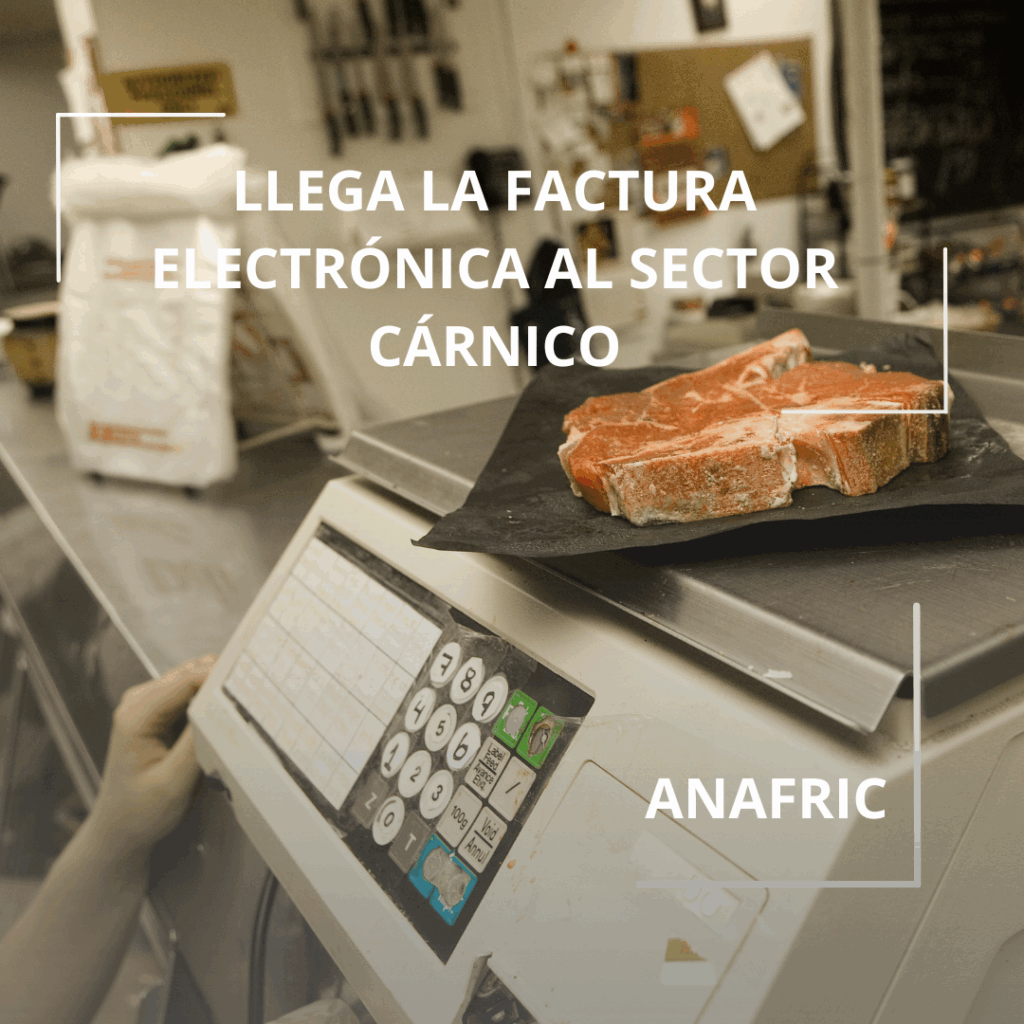The countdown has already begun for more than six million self-employed workers and small and medium-sized businesses, who will be required to implement electronic invoicing in their businesses next year to comply with the Anti-Fraud Law and the Regulation on Computerized Invoicing Systems (SIF). Of course, the meat sector is also required. Meat companies, slaughterhouses, industries with their own sales channels, butcher shops, and self-employed workers in traditional channels must adapt their technological tools before January 1, 2026 (although this is currently in the voluntary phase) to comply with the new requirements of the Tax Agency.
The State Tax Administration Agency (AEAT) is organizing a tour of 40 Spanish cities to explain the change with a talk entitled “The New Invoicing: The Change Is Now.” For more information on the new invoicing systems, find out more here.

What is the Verifactu System?
Verifactu is a digital invoice certification system that will require all companies and professionals who issue invoices electronically to comply with a series of requirements. The main objective is to prevent the manipulation of tax documents, ensuring that issued invoices cannot be altered after they are generated.
This system will require each electronic invoice to be uniquely identified and recorded in real time in a database controlled by the Tax Agency. This system aims to prevent fraudulent practices, such as invoice duplication or modification to evade taxes.
How Will Verifactu and the New Law Affect Commercial Scales and Weighing Scales?
One of the sectors that will be directly impacted by the new law is businesses that use scales and weighing scales to weigh products and issue tickets or invoices. Traditionally, these devices are programmed to issue a payment receipt detailing the weight and price of the purchased product. With the entry into force of Verifactu, these receipts must comply with new traceability and authenticity requirements.
This means that commercial scales and balances must be integrated with invoicing systems that comply with Verifactu regulations. The devices must be certified and connected in a way that ensures that the receipts issued are tamper-proof and that each transaction is duly recorded and reported to the Tax Agency.
Implications for Merchants
For merchants, adapting to the new law will require an investment in technology, as many current devices do not meet Verifactu requirements. Scales and balances will need to be updated or replaced with models compatible with the new system, which could entail a significant expense. Therefore, at Disfritel we want to help you adapt your business to this new law with special offers and discounts on scales and balances.
Furthermore, merchants must ensure that their management systems are aligned with the regulations, which could include contracting certification services or updating software to integrate Verifactu functionality.
On the other hand, this new regulation also has positive aspects. By improving the transparency and traceability of transactions, the Verifactu system is expected to contribute to reducing unfair competition and fostering a fairer trading environment, where all stakeholders comply with their tax obligations.
Exceptions to this law include:
- Companies covered by the Immediate Provision of Information (SII), such as some large meat groups.
- Companies that already operate with the TicketBAI system (applicable in the Basque Country and Navarre).
















